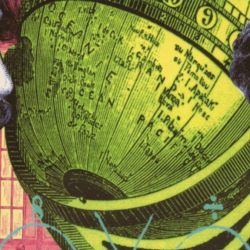I’ve always been fascinated by those with the knack for freestyle. The comic with the side-splitting improv, the rapper slaying an opponent in a clash, the insane talent of creating something special and memorable out of an unexpected or continually changing situation.
There are many examples of brilliant improv, but I became aware recently of one brilliant example that stuck with me. In 1975, Keith Jarrett — a brilliant jazz and classical pianist — turned up to play a sold-out concert at the Cologne Opera house.
He was tired, was suffering from a bad back made worse by the 350-mile drive from his previous concert in Zurich and was presented with his piano for the evening. Not the Bosendorfer 290 Imperial concert grand piano that he had asked for, but a far smaller tired, substandard, out of tune baby grand, with malfunctioning pedals.
Not what he’d expected.
Amazingly, he not only went out and performed to an audience of 1,300 but over the course of the next 76 minutes produced two stunning, completely improvisational pieces that still to this day comprise the best-selling piano album of all time.
As a card carrying ‘planner’, the thought of having to perform on-the-fly is scary enough let alone with equipment that is substandard and in front of over a thousand paying customers. You couldn’t have got me on that stage for love nor money.
Yet with the world seemingly changing faster than ever, the idea that we can really be prepared for anything feels increasingly old school. You can’t opt-out of change, it’s the norm to have best laid plans torn to shreds as the world moves on.
And so, we’re faced with two choices
Do we spin out, stress out, and fight to maintain a clear course through the mayhem, or should we tune in, chill out, and improvise? Be more Keith if you will.
Improvisation gets a bad rap as ‘winging it’, a jazz-hands, seat-of-the-pants performance born out of piss-poor planning. But as Robert Poynton notes in his brilliant Do/Improvise book, “People think of improvisation as unruly and chaotic but…it is a discipline with a system of rules that guide your conduct.”
Improvisation isn’t magic, it’s something that we can — and perhaps should — learn to be better at, and more confident doing. At its heart, it’s a commitment to acute awareness, the removal of expectations, and spotting opportunities to create.
According to Poynton, improvisation has ‘a number of uncommon virtues’.
Firstly we should assume that events are always out of our control, we should dispel with the myth that we’re in charge of things. With that in mind, we should be discouraged from trying to tame them. After all, what’s the point? We’ll only get ourselves wound up by trying to fix the world into our vision of how it should be.
And that leads to the last virtue of focusing on how to use whatever the world gives you, however it turns up, everything is an opportunity.
Adopting an improviser mindset means that suddenly change isn’t a scary thing, quite the opposite. With an open mind we can see every change as an opportunity to create something new.
As Miles Davis — his Kind of Blue album being another brilliant example of highly-skilled improvisation – once famously said, “in improvisation, there are no mistakes”, and when you start to look at every changing scenario as an opportunity to listen, to discover, to learn and to create something new, then we can all really face into it and move our businesses, our brands and ourselves forward with all the optimism and certainty we’ll ever need.
Featured image: Harry Swales / Unsplash
































